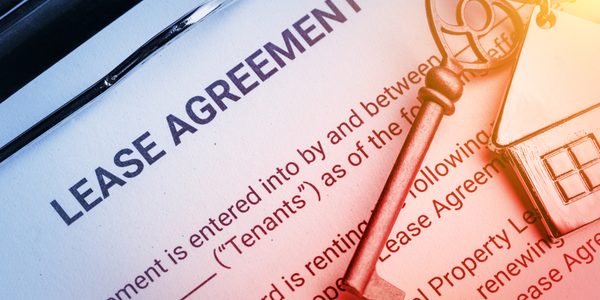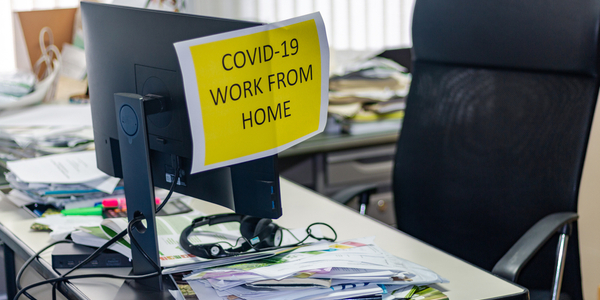
Business owners face an unprecedent amount of uncertainty amidst the COVID-19 epidemic. This is particularly true for those who lease commercial space. Many commercial tenants are being forced to reduce their business output or temporarily shut-down operations altogether. Unfortunately, this means a drastic reduction—or perhaps, a complete elimination—of business revenue. And yet, while their incoming cash flow is abruptly halted, tenants are still expected to fulfill their contractual obligations, which includs their responsibility to pay rent. This is a difficult financial situation for business owners, as many can’t afford their next payment. Could landlords simply defer or temporarily reduce the rent? Although this is certainly a possibility, deferring payments may ultimately just postpone the financial burden—and there’s no reliable timetable as to when the pandemic will subside and owners can get back to normal business operations.
For tenants, it’s important to have conversations with your landlord early and often. Given that a tenant’s revenue is indeed also very important to the landlord’s financial well-being, landlords may be surprisingly willing to compromise and renegotiate to address the current economic uncertainty.
5 Common Questions from Commercial Renters
Again, this is uncharted territory for all involved parties; tenants, landlords, and even lawmakers. Clear and honest conversations between landlords and tenants can be beneficial during such uncertain times (and, of course, any verbal agreements or modifications should be made in writing). Nonetheless, if a dispute arises between landlord and tenant, courts will ultimately make a determination based on the language of the lease agreement. In these instances, it’s wise to consult an attorney to review your commercial lease. During your discussions, here are a few additional questions that may arise:
1. Must I Continue to Pay Rent (Even though I Don’t Use the Space)?
The short answer, probably. In all likelihood, you’re still required to fulfil all of the rental obligations that are specified in your commercial lease, regardless of the COVID-19 economy. This includes making rent payments according to the timetables detailed in the lease. As stated earlier however, tenants might be able to negotiate a temporary payment relief or rent reduction plan with their landlord, but this will depend on the landlord’s willingness to help.
2. Will my Business Insurance Cover the Losses?
Many owners are under the assumption that their business insurance policies—which they’re usually required to carry per their commercial lease—will cover the losses incurred by the recent pandemic. Unfortunately, early indications suggest this isn’t the case. Many landlords require renters have business interruption policies, but the insurance is solely a property-related coverage, meaning that it will only protect when operational interruptions are caused by physical damage to property. It may be worth noting that owners generally carry multiple types of business insurance (for example, general liability insurance, insurance for civil authority action, or mitigation insurance) and an experienced attorney should be consulted for a full review of these various policies and what they do and do not cover.
3. Can I Invoke Force Majeure to Break my Lease Obligations?
On rare occasions, a commercial lease may contain language on force majeure. However, force majeure provisions in this context will almost certainly not apply to monetary obligations. Although it’s conceivable that the COVID-19 pandemic indeed qualifies as an event that triggers force majeure, these provisions in a commercial lease typically apply to things like the landlord’s responsibility to provide the space to the tenant, not to a tenant’s inability to pay rent.
4. Can I Rely on Lawmakers for Relief?
Whether or not tenants can expect lawmakers to provide protection or relief via regulation is up in the air. We’ve already seen a number of bills temporarily banning residential evictions. However, only a few cities—such as Los Angeles—have proposed measures to similarly protect commercial renters from evection. Although business owners shouldn’t rely on lawmakers to help with their commercial lease obligations, it’s promising that (at least in some cities) such conversations are taking place.
5. How Do I Approach the Landlord regarding my Lease Obligations?
Again, if you’re struggling to fulfil the obligations of your commercial lease amidst the COVID-19 pandemic, a clear line of communication with your landlord is key. Landlords not willing to offer rent reductions may be open to alternative ideas, such as restructuring to monthly instead of quarterly payments or tapping-in to the security deposit. Above all, keep in mind that the landlord’s income depends—to some degree—on the tenant’s financial well-being, so landlords may be willing to help. The bottom line for business owners is that regardless of the pandemic, they’re still obligated to honor the language of their commercial lease agreement. Tenants are, however, encouraged to engage their landlords in conversations regarding rental obligations, particularly if they anticipate issues making rental payments.
Simply terminating the lease isn’t realistic. However, landlords are in an interesting position where outright evection of tenants may actually do considerable financial harm to themselves as well. Not only is landlord income inextricably linked to tenant income, evicting tenants today means loss of future revenue once the pandemic subsides. For example, a landlord that provides no relief may further accelerate the permanent closure of a tenant’s business. But by doing so, they’ve lost future revenue in rent payments that they’d receive were the business still viable. Tenant revenue is indeed very important to landlords, and as such, landlords may actually be more inclined to work with their tenants.
 May 04, 2020
May 04, 2020

